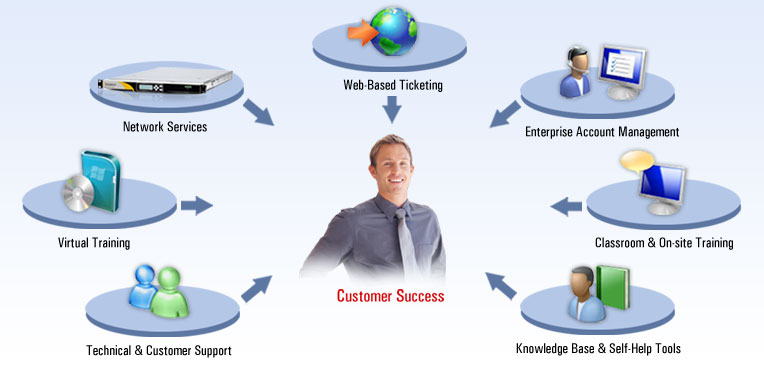
Course ID: 48573
Level: NQF Level 5
Credits: 147
Qualification Title: National Certificate: Information Technology: Systems Support
Purpose and Rationale of the qualification:
To develop learners with the requisite competencies against the skills profile for the systems support career path (The overarching aim being to develop a broader base of skilled ICT professionals to underpin economic growth)
A qualifying learner at this level will be a well-rounded IT professional building on foundational technical skills acquired at NQF level 4, via the National Certificate in IT Technical Support or equivalent. This qualification is expanding the specialisation(s) started at NQF level 4 into the core field of networking and support, with further specialisation(s) into IT Support fields or in any other related vertical or enabled markets.
The qualification is designed to:
- Provide qualified learners with an undergraduate entry into the field of networking/systems support, earning credits towards tertiary offerings in the fields of Computer Studies or Computer Science
- Prepare qualified learners for initial employment in the computer industry.
- Allow the credits achieved in the National Certificates relating to Information Technology at NQF level 4 to be used as prior learning for this qualification.
- Allow many of the unit standards listed in this qualification, to be used in Learnership Schemes in the Information Systems and Technology sector, as well as other sectors where Information Technology is a key requirement.
Research has indicated that in order to qualify for this qualification, learners will need to demonstrate competence in the following:
- Ability to use logical methodology to troubleshoot the common types of hardware and software problems typically encountered in the day-to-day operations of an organisation.
- Ability to understand the role of technology in the business context.
- Ability to create integrated technology-based communication systems for improved business effectiveness.
- Ability to store, manage and retrieve knowledge (data) efficiently and effectively to meet organisational requirements.
- Ability to ensure secure information systems that will serve to protect the business from data loss and breaches of integrity.
- Ability to design and reflect business structure in IT Systems appropriately in order to optimise operating efficiencies, flows of data and resource utilisation within the structure.
- Ability to mobilise technical and technology-based resources to solve business problems in a specified context.
- Ability to perform cost effectively and efficiently in technology-based projects.
- Ability to manage customer relations appropriately.
- Ability to operate effectively within a change, release and configuration process.
- Ability to utilise technology-based research tools and knowledge-based repositories.
- Ability to identify and communicate business opportunities appropriately.
- Ability to install, support and maintain end-user applications
Finally, this qualification has been developed to assist with professionalisation across the Information Technology Industry. It is intended to allow qualified learners to gain membership of registered professional bodies in the ICT industry.
Qualification rules:
The qualification consists of a minimum of 147 credits and has been designed in accordance with the SAQA rules of combination
Rules regarding Fundamental, Core and Electives
- All fundamental outcomes are compulsory for this qualification (40 credits)
- All core outcomes are compulsory (77 credits)
- A minimum of 30 elective credits to be completed.
Exit level outcomes:
A learner will be able to:
- Use a logical methodology to troubleshoot the common types of hardware and software problems typically encountered in the day-to-day operations of a department in an organisation.
- Understand the role of technology in the business context.
- Demonstrate basic application support skills
- Demonstrate operating system support skills
- Demonstrate network support skills
- Relate business problems and information technology solutions
- Demonstrate appropriate technical reporting skills
- Demonstrate appropriate customer care in the context of IT support
- Function appropriately in a change management process within a support team
- Demonstrate hardware support skills for server computers
- Demonstrate an understanding of Systems Support contextualised within a selected work area.
The full information can be found on the SAQA Website by clicking here.